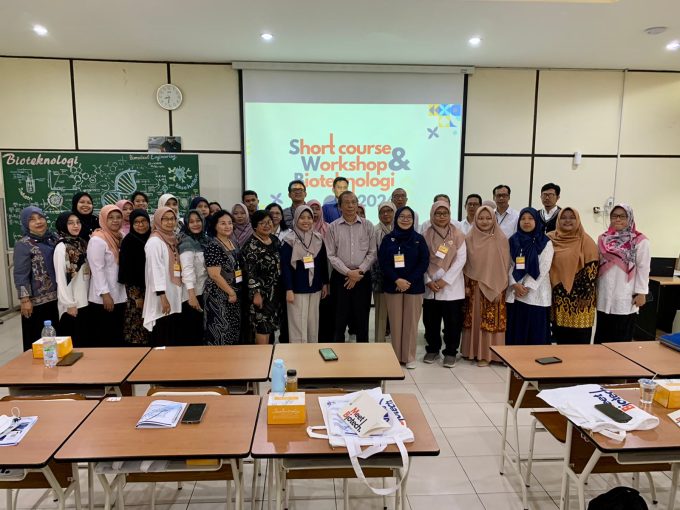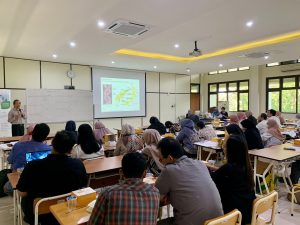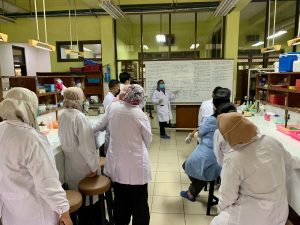
The Master’s and Doctoral Programs in Biotechnology at Universitas Gadjah Mada hosted a Short Course and Workshop specifically designed for high school biology teachers in the Special Region of Yogyakarta (DIY). This event took place on August 7-8, 2024, and aims to build the capacity of educators in the rapidly evolving field of biotechnology. The workshop welcomed 30 biology teachers from various high schools across Yogyakarta, providing them with an opportunity to deepen their understanding of molecular genetics and its applications.
Participants engaged in comprehensive sessions covering essential topics such as molecular genetics, which includes the central dogma of biology and DNA replication. These foundational concepts are crucial for teachers to effectively convey the complexities of genetic information to their students. By enhancing their knowledge, teachers can inspire the next generation of scientists and innovators.

In addition to theoretical knowledge, the workshop included practical training on molecular genetics techniques, such as DNA isolation and Polymerase Chain Reaction (PCR). These hands-on experiences are vital for teachers to gain confidence in laboratory procedures, enabling them to create a more interactive and engaging learning environment in their classrooms.
Furthermore, the workshop delved into genetic engineering, covering both the fundamental theories and practical techniques such as cloning and gene expression. The initiative is part of a broader commitment by Universitas Gadjah Mada to foster a culture of continuous learning and professional development among educators. By investing in the capacity building of teachers, the university aims to create a ripple effect that enhances the quality of education in the region.

In conclusion, this short course and workshop not only aims to improve the competencies of biology teachers but also seeks to promote a sustainable approach to education. By equipping educators with the latest knowledge and skills in biotechnology, they can better prepare students to tackle future challenges in science and technology.
